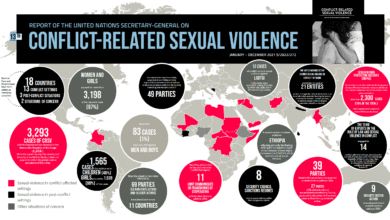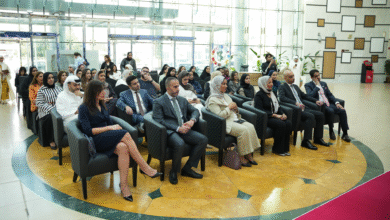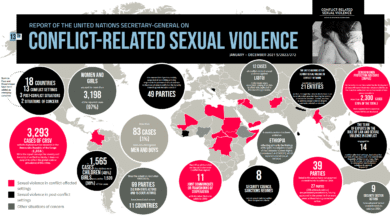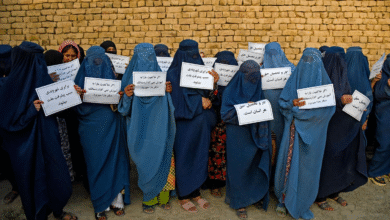Gender Empowerment: Women Farmers Battling Climate Change

In the heart of Peru, gender empowerment is taking root among women farmers who are navigating the complex challenges brought on by climate change. These resilient women are not only combating environmental threats such as floods and droughts but are also striving to enhance food security and preserve agrobiodiversity in their communities. By securing land rights and participating in sustainable agricultural practices, these women are transforming their roles within the agricultural landscape, despite facing numerous obstacles. Organizations like the Sumaq Chuyma Association exemplify the strength and perseverance of women farmers who refuse to be marginalized. As these women work diligently to safeguard their livelihoods, their efforts underscore the vital link between gender empowerment and sustainable development.
The pursuit of gender equality encompasses a broad spectrum of initiatives aimed at uplifting women and addressing the inequalities they face. Female agriculturalists, especially in vulnerable regions like Peru, are at the forefront of tackling urgent issues like climate fluctuations and the pressing threat of food shortages. By fighting for their rights to land and resources, they pave the way for more equitable agricultural systems. Furthermore, fostering resilience among these women is essential for improving community food security, encouraging sustainable practices, and preserving local biodiversity. Empowering women in agriculture is not just a matter of fairness; it is a crucial strategy for ensuring the long-term health of our planet and society.
The Impact of Climate Change on Women Farmers in Peru
Climate change is an escalating crisis that disproportionately impacts women farmers in regions like Ácora, Peru. The persistent fluctuations in weather patterns, from destructive floods to severe droughts, have devastated agricultural productivity. Women farmers, often the pillars of household food security, face immense challenges as they navigate an environment where traditional farming practices are increasingly strained. These changes not only threaten their immediate crop yields but also jeopardize the broader ecosystem of agrobiodiversity essential for sustainable agriculture.
The reality of climate change has forced women farmers like Pascuala Pari to adapt rapidly. As the climate crisis deepens, food insecurity becomes an immediate concern, particularly for households led by women. They bear the brunt of these hardships as primary caregivers, responsible for nutrition and food supply in their communities. With limited access to resources and often without title to the land they cultivate, women are at risk of losing their livelihoods, underscoring the urgent need to address climate impacts through inclusive policies that empower women farmers.
Gender Empowerment and Land Rights: A Necessity for Sustainability
Gender empowerment is essential for achieving sustainable agricultural practices, particularly in the context of land rights. In many regions, including Peru, women are disproportionately disadvantaged when it comes to legal ownership and access to land. According to a recent report, 58% of countries lack adequate protections for women’s land rights, which severely undermines their ability to contribute to food security and sustainable development. Empowering women through legal recognition as rightful landowners not only enhances their confidence but also aligns with broader sustainability goals.
Land rights for women transcend mere ownership; they form the bedrock for economic independence and resilience against external shocks such as climate change. When women hold title to their land, they gain access to financial resources, agricultural training, and investment opportunities that were previously out of reach. Experts argue that this empowerment is critical for fostering innovation in agricultural practices among women farmers, allowing them to leverage their knowledge of agrobiodiversity to secure food supplies for their communities.
The Role of Seed Banks in Enhancing Food Security
Seed banks represent a powerful tool for women farmers in Peru to combat the challenges posed by climate change and food insecurity. By establishing these repositories of indigenous seeds, women like Ms. Pari and Ms. Ninaraqui are preserving vital agrobiodiversity that can withstand fluctuating climate conditions. These seed banks not only safeguard traditional crops but also provide a means for economic empowerment by enabling women to trade and share seeds within their communities.
Furthermore, the establishment of seed banks fosters a sense of community and collective resilience among women farmers. They not only serve as a means of preserving agricultural diversity but also as a hub for knowledge exchange. In Ácora, the collaboration among women in managing seed banks reinforces their roles as vital contributors to food security and highlights their agency in the fight against climate change. By investing in these initiatives, we support both environmental sustainability and the empowerment of women in rural settings.
Transformative Leadership Among Women Farmers
Leadership within the community is vital for addressing the intersectionality of climate change and gender inequality. Women farmers in Ácora, such as Ms. Pari, are stepping into leadership roles that challenge traditional norms and empower others in their communities. This shift not only allows them to voice their concerns regarding land rights and climate action but also positions them as critical agents of change in fostering sustainable practices. Initiatives aimed at developing women’s leadership in agriculture can enhance their impact on policies affecting their communities.
The rise of women leaders in agriculture signifies a transformative wave that can influence food systems at both local and national levels. As they gain confidence and develop management skills through peer-supported programs, women can advocate for their rights and the implementation of sustainable agricultural practices. This empowerment fosters a more resilient agricultural sector, as women-led initiatives have been shown to improve food security outcomes and increase biodiversity through innovative farming practices.
Building Resilient Communities Through Agrobiodiversity
Agrobiodiversity plays a crucial role in enabling communities to adapt to the effects of climate change. In areas like Ácora, preserving a wide variety of crops not only supports food security but also strengthens the resilience of local ecosystems. Women farmers are pivotal in this regard, as they possess traditional knowledge that is essential for selecting and cultivating diverse crop varieties well-suited to changing environmental conditions. The preservation of agrobiodiversity ensures that farming communities can withstand potential crop failures caused by climate-related disruptions.
Moreover, fostering agrobiodiversity through women-led initiatives can lead to economic opportunities. As diverse crops are cultivated and preserved, community markets can thrive on local products, promoting self-sufficiency and reducing dependency on external food sources. This approach not only bolsters the local economy but also enhances the nutritional quality of the food supply, addressing food insecurity issues comprehensively. Empowering women in this capacity is crucial for sustainable development and climate resilience.
Challenges Faced by Women Farmers: Beyond Climate Change
While climate change poses significant challenges to women farmers, other systemic barriers also hinder their progress. Limited access to education and training, coupled with entrenched societal norms, restricts women’s roles in agriculture. Many women in rural Peru face discrimination that impedes their ability to gain the knowledge and skills necessary for adapting to agricultural innovations. Addressing these challenges requires a multifaceted approach that includes advocacy for policy changes and community education.
Additionally, women farmers often lack access to financial resources that could help them combat the changing climate. Without adequate credit facilities or microfinancing options, they cannot invest in new technologies or sustainable farming practices that could ultimately lead to greater resilience. To tackle these barriers, stakeholders must prioritize financial inclusion and support networks that empower women as both farmers and leaders in their communities.
The Intersection of Food Insecurity and Gender Equality
Food insecurity is an alarming issue that deeply intersects with gender inequality. In regions like Ácora, women not only bear the responsibility of providing food for their families but are also disproportionately affected by rising food prices and crop failures. As caretakers, their roles become even more pronounced during times of crisis, yet their voices often go unheard in decision-making processes that could alleviate these pressures. Addressing food insecurity through a gender lens is essential to building a more equitable society.
Empowering women farmers to participate fully in agricultural policy discussions can lead to more effective solutions for food insecurity. When women have equal representation at decision-making tables, their unique experiences and insights can inform strategies that address both the challenges of food security and the broader climate crisis. Thus, fostering gender equality in agriculture is not only a matter of social justice, but also a vital component of long-term food security initiatives.
Addressing Socio-Cultural Barriers to Women’s Empowerment
Socio-cultural norms continue to pose significant challenges to women’s empowerment in agriculture. Deeply entrenched roles often dictate that women’s contributions to farming are undervalued or overlooked, limiting their recognition as essential stakeholders in agricultural development. Changing these perceptions requires a concerted effort from all sectors of society, including education programs that promote gender equality and challenge traditional gender roles.
Incorporating these discussions into community settings can promote the idea that women’s voices and experiences are critical to the future of sustainable farming. By nurturing a culture that values women’s contributions, communities can facilitate a shift toward greater inclusivity and collaboration in agricultural practices. Such changes can enhance the influence of women in agriculture, ultimately leading to improved outcomes for food security and economic empowerment.
Leveraging International Support for Local Women Farmers
International organizations play a vital role in supporting local women farmers in overcoming the challenges they face. By funding initiatives that focus on skills development and access to resources, these organizations can amplify women’s efforts to reclaim their rights to land and secure their livelihoods. Collaboration with local governments and NGOs further strengthens these initiatives, providing the necessary infrastructure for sustained impact.
Moreover, international support often comes with the potential for knowledge exchange, enabling women farmers to learn best practices from one another. In this globalized world, sharing successful strategies for resilience against climate change can bolster local knowledge and lead to effective adaptation measures. By empowering women through these networks, communities can work collectively toward achieving gender equality and sustainable development goals.
Frequently Asked Questions
How does climate change impact women farmers in Peru’s Ácora region?
Climate change poses significant challenges for women farmers in Peru’s Ácora region, leading to extreme weather conditions such as floods and droughts. This results in crop failures and threatens agrobiodiversity, exacerbating food insecurity. Such conditions disproportionately affect women, who play crucial caregiving roles and are often responsible for household food security.
What role do women farmers play in combating food insecurity due to climate change?
Women farmers in Peru are at the forefront of efforts to combat food insecurity stemming from climate change. By establishing seed banks, they not only preserve indigenous agrobiodiversity but also ensure stable food production. These initiatives empower women economically and socially, enabling them to sustain their livelihoods while contributing to community resilience against climate-related challenges.
Why are land rights important for women farmers in addressing climate change?
Secure land rights are critical for women farmers as they enhance their agency and resilience against climate change. When women possess legal rights to land, they can invest in sustainable agricultural practices, secure in the knowledge that they will reap the benefits. This recognition fosters gender empowerment and allows women to elevate their status as farmers, unlocking resources and opportunities for growth.
How have seed banks established by women farmers improved agrobiodiversity in Peru?
The establishment of seed banks by women farmers in Peru has been pivotal in enhancing agrobiodiversity. These banks store over 125 varieties of resilient native crops, allowing for the preservation and cultivation of traditional species that are well-suited to local environments. This effort not only safeguards biodiversity but also supports the economic stability of women farmers, empowering them to promote food security in their communities.
What social norms impact gender empowerment for women farmers in Ácora?
In Ácora, women farmers face discriminatory social norms that limit their opportunities for advancement. These norms can discourage young women from pursuing agricultural leadership roles, impacting their capacity to respond to climate challenges effectively. Addressing these social barriers is essential for true gender empowerment, enabling women to fully participate in agricultural development and climate adaptation strategies.
What initiatives support the empowerment of women farmers related to land rights and climate resilience?
Various initiatives, including support from international organizations like UNDP and FAO, focus on empowering women farmers by advocating for land rights and promoting climate resilience strategies. By providing training and resources for managing seed banks, these initiatives help women reclaim agency over their agricultural practices, enhancing their ability to adapt to climate change and secure their livelihoods.
How can women’s involvement in agriculture contribute to sustainable development goals?
Women’s involvement in agriculture is essential for achieving sustainable development goals, particularly those related to gender equality, food security, and climate action. Empowering women farmers fosters agrobiodiversity, improves food systems, and enhances community resilience to climate change. Recognizing women’s contributions and addressing their challenges is critical for meeting these interconnected global goals.
| Aspect | Key Points |
|---|---|
| Location | Ácora, Peru, over 3,800 meters above sea level, severely affected by climate change. |
| Climate Challenges | Floods and droughts are detrimental to crop production and biodiversity. |
| Role of Women | Women farmers face intersectional challenges and bear the brunt of food insecurity. |
| Seed Banks | Women have established seed banks to preserve biodiversity and support livelihoods. |
| Legal Rights | Many women lack legal land rights, impacting their economic outcomes and agency. |
| Social Norms | Changing discriminatory social norms is essential for true empowerment. |
| Intergenerational Knowledge | Women are recovering indigenous seed knowledge and passing it on. |
| Community Support | Support from international organizations aids women’s initiatives and leadership. |
Summary
Gender empowerment is crucial in the face of climate change and the challenges faced by women farmers. In regions like Ácora, Peru, women are at the forefront of battling food insecurity and environmental degradation. By establishing seed banks and challenging traditional norms, they are not just preserving biodiversity but also redefining their roles and strengthening their communities. Legal protections and changing social attitudes towards women are vital steps towards ensuring that gender empowerment leads to sustainable development and improved livelihoods.




